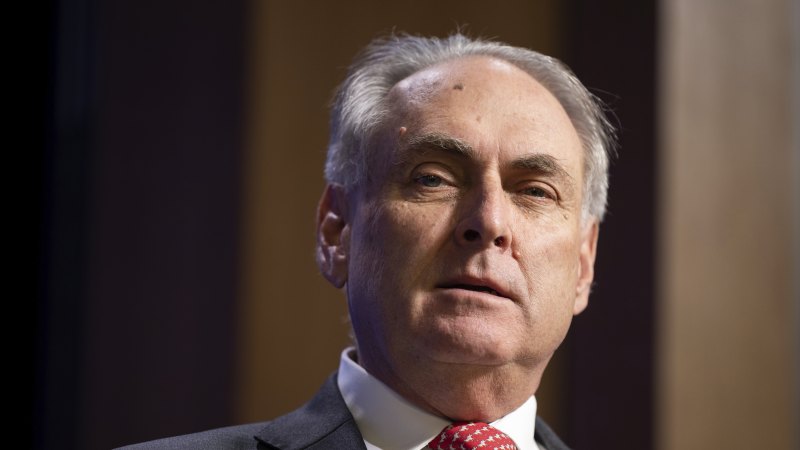
European farm anger over climate threatens Australian trade outcome
June 7, 2023Save articles for later
Add articles to your saved list and come back to them any time.
Brussels: Growing rural anger towards Europe’s ambitious climate targets is threatening to thwart Australia’s chances of securing commercially significant access for its beef, dairy and wine exports, ahead of looming elections.
Australian Trade Minister Don Farrell left Brussels on Tuesday conceding it would be a “hard slog” to finalise the deal within the next six weeks, reiterating that the federal government was not prepared to accept a second-rate deal when it comes to agriculture products.
Trade Minister Don Farrell concedes it will be hard to finalise a deal with the European Union.Credit: Alex Ellinghausen
But European Union officials have privately conceded that sensitivities in the farming sectors across the 27-member bloc will make it almost impossible to grant Australian farm commodities a fast track to tariff-free and quota-free access to the market of 450 million consumers, with an estimated $26 trillion gross domestic product.
The bloc’s groundbreaking European Green Deal is being resisted by large segments of society which oppose the slew of new costly and radical environmental laws and rules.
Irish farmers are rebelling against a proposal revealed this week to cull tens of thousands of cattle a year to help Ireland meet its climate change targets. The Irish government wants to reduce emissions from farming by a quarter by 2030 with one option being considered to reduce the national dairy herd by 10 per cent – 65,000 cows a year for three years – at a cost of €200 million ($320.5 million) annually.
In the Netherlands, months of road blocks and demonstrations by farmers frustrated with onerous EU green policies were capped by the stunning victory in provincial elections in March of a new conservative party representing farmers, the Farmer-Citizen Movement. Convoys of tractors have also brought traffic in Brussels to a standstill recently, as thousands of Belgian farmers protested the Flemish regional government’s plans to limit nitrogen emissions from agriculture, which they say threaten to put many of them out of business.
Farrell, who held lengthy meetings with EU trade commissioner Valdis Dombrovskis and agriculture commissioner Janusz Wojciechowski in Brussels on Monday and Tuesday, conceded there was “still a long way to go” and it could be tough to reach the mid-2023 timeline set by leaders of the respective governments.
“We will persevere and persist, as we’ve always done with our trade agreements,” Farrell said. “But we have been clear that a deal for a deal’s sake is not on the cards, and we will need commercially significant access in agriculture to make it worth our while.”
The Australia-EU trading relationship is Australia’s second largest, and the EU is Australia’s second largest destination for goods exports. However, a trade deficit of about $38 billion exists and the EU’s barriers to agricultural imports are notoriously prohibitive.
The average EU tariff on agricultural imports is 14.2 per cent which is much higher than the average tariff on non-agricultural products, which is just 4.2 per cent. Dairy faces the highest average tariff, at 32.3 per cent. Sugar and meat are not far behind, at 27 per cent and 19 per cent respectively.
The EU has not budged on demanding Australia remove geographical indicators from certain food products such as feta, parmesan and prosecco, which would essentially prevent domestic producers from using those names.
European Commission President Ursula von der Leyen and German Chancellor Olaf Scholz have made the deal a priority for the bloc in its quest to cut the EU’s trade dependency on countries like Russia and other more autocratic regimes.
It would also fit into the bloc’s strategy to increase its geopolitical weight in the Indo-Pacific region and further its aim to diversify the EU’s supply of critical raw materials needed for a green economy transition, like lithium and cobalt.
Get a note directly from our foreign correspondents on what’s making headlines around the world. Sign up for the weekly What in the World newsletter here.
Most Viewed in World
From our partners
Source: Read Full Article



